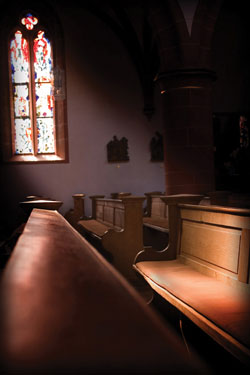Judge raises eyebrows after sentencing a teen to church

iStockPhoto
Millions consider church attendance a positive in life. Apparently, so does Oklahoma judge Mike Norman, who last year sentenced a minor involved in a fatal car accident to 10 years of church attendance. Norman, a Muskogee County district judge, imposed the sentence on 17-year-old Tyler Alred after he pleaded guilty to manslaughter charges in connection with a car accident that killed his 16-year-old friend. Alcohol was allegedly involved. In December the American Civil Liberties Union of Oklahoma filed a judicial conduct complaint against Norman contending the judge violated the state’s Code of Judicial Conduct.
Specifically, the ACLU claims that Norman violated a provision requiring judges to uphold and apply the law because he ignored fundamental religious-liberty principles; the civil liberties group also claims Norman violated a provision banning judges from showing bias or prejudice because of the mandatory church sentence.
“There are few, if any, principles more fundamental to American constitutional law than the doctrine that religious worship must always remain a purely voluntary act,” says the legal director for the ACLU of Oklahoma, Brady Henderson. “Ordering someone to attend church on penalty of prison is about as far as a court can get from both the letter and spirit of the First Amendment. By executing a court order for a defendant to go to church for 10 years, the judge violated both the establishment and free exercise clauses.”
There is no specific timetable for resolution of the complaint. Henderson says he does not expect the judge to be removed. But he says a reprimand or censure is possible.
“What we hope to see is action that goes far enough to make it clear that violating the Constitution will have consequences,” he says. “Otherwise, it remains too easy for a judge to erode fundamental protections of religious freedom merely to get a desired result in a particular case.”
Judge Norman says he cannot comment on the complaint until there has been a decision from the Oklahoma Council on Judicial Complaints.



